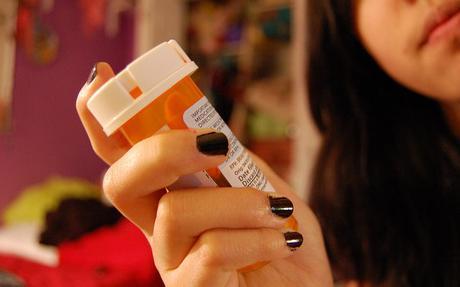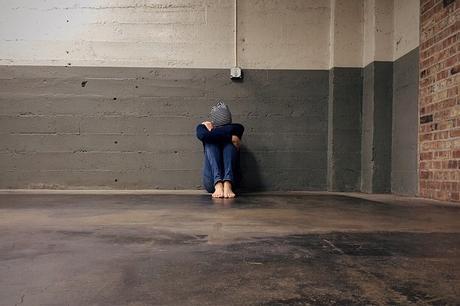
Life isn't easy. It can sometimes seem like many difficult and traumatic life events all pile on at once, at no fault of our own. Unfortunately, some people aren't as able to deal with the short and long term mental effects of these difficulties, and end up burning out, or even turn to more harmful methods of recuperation, such as drugs, alcohol, pornography, gambling and many others. It's important to understand the science of addiction to understand why this is. Addicts are, for the most part, not 'bad' people as a result of their addiction.
The means at which they sustain their addiction could lower their moral standing, but it's important to know why this happens. Our brains are important computers, and they are primarily concerned with our survival and relative wellbeing. For this reason, anything that sustains us or helps us feel good artificially is wired in our neural pathways as an activity that we should absolutely try again. This 'get while it's good' mentality leads to overindulgence and shame, which is something you've probably experienced after eating a good thanksgiving meal.
However, the neural strengthening that occurs in much more stimulating habits such as pornography or drugs can mean that a brain becomes predisposed with finding these considerations at the behest of any other item, such as security or warmth. Over time, as the circuitry is impeded in the brain, long-term decision making becomes difficult, and instead, the brain opts for short term reward because it knows that it can find it.
Why would your brain prioritize you eating well, finding your goals and putting all of that effort into achieving them when simply getting that quick fix can feel just as good with little effort? These strong pulls are as old as humanity itself. They are powerful, and they matter. Without knowledge of this, it's much more likely to fall into self-indulgence and difficulty maintaining a happy, healthy life.
Believe it or not, can happen to anyone, no matter how strong their internal character. Neurons that fire together wire together, and so this exponentially increasing reinforcement can mean that even the most strong hearted people can fall prey to difficulty. It's stunning to realize how many people have some form of addiction that they might not even know about. For some, it could be daytime television. For some, it could be exercise. Loosely defined, almost anything you do for a perceived benefit could be classed as an addiction. Some are worse than others though, of course, and so an addiction properly defined is something that when repeated, interferes with the living of your life to the degree that is worrying.
As a friend, it's important to know what the telltale signs are of someone who is addicted in your friendship circle. Here's what you should look for:
Social Isolation
Social isolation is the number one means of an addict to continue his habit. If you've noticed your friend has stopped coming out or relaxing with you as much and is obviously not annoyed with you for some reason, then it might be cause for concern. Do they make excuses for not attending places that don't seem to add up or make enough sense, or if activities they positively loved beforehand are now not even thought of or mentioned? Then there might be an issue. If in your social media group or direct instant messaging chats, they are relatively quiet when they used to be boisterous, something could be wrong. Never instantly assume they are addicted to a substance due to this, but it might serve as an early warning sign that you should keep in mind.

Emotional Behaviour
If your friend is exhibiting signs of strange and unpredictable emotional behavior, such as being completely friendly and great to be around one minute, and then completely irrational and self-serving the next, one of two issues could be the cause. If you are certain they have nothing wrong in their personal life, or can tell to the best of your ability, this behavior might be indicative of a blossoming mental health issue. It might simply be a symptom of addiction . If for years you have had a strong friendship with this individual, and you have been close until know, them treating you differently and possibly vindictively could indicate a larger issue.
Funds
If, during your activities with your friends, you notice that they repeatedly complain or say they can't afford the activity in question, then you know there could be an issue. If they lose their job they've held for a while, and they're not completely forthcoming about the issue or are seemingly deceptive about it, addiction is likely. At this point, it's important for them to because it's obviously impacting the daily functioning of their life.
Physical
Addiction is physical, and so it has physical consequences on the body of those afflicted. If your friend has deep bags under their eyes, constantly seem tired, pale or undernourished, or seem lethargic every time you meet them, this could indicate an underlying unhealthy issue. If they are in contact with you still, but seem to reply to your message at odd hours of the day and night, they might have an addiction that is interfering with their sleep cycle. Many stimulant drugs and alcohol do this, as they throw off your daily circadian rhythm in favor of staying up for multiple hours and sleeping little.

The first thing you should do, if you've noticed any of these issues, is inform your friend that you are there to help them, and you simply do not judge them whatsoever. Addiction is a multi-headed beast, and never occurs in a vacuum. It's important to try to get to the root cause of the issue, but also to understand that this might not be your place to interfere.
All you can do is offer presence, and get them the correct help through rehab or through therapy as soon as possible. You can notify your local medicinal authority about a friend who is struggling with an addiction, but unless they seek help themselves, they cannot be helped. Sometimes, incriminating them only serves to strengthen the issue, but it can get them away from their vice of choice. Use your best judgment, and understand that you will have taken the best course of action. All you can do as a friend is be there.
.
Main image credit.

